Space travel, cutting edge technology, aliens and A.I. – science fiction has long been a storied cinematic genre about the optimism of humankind’s progress. But sometimes, there comes along a movie that combines the expansive vision of sci-fi with the heart-stopping terror of horror.
While it remains up for debate, the beginning of sci-fi horror is largely considered to be the beginning of science fiction itself: Mary Shelley’s Frankenstein, published in 1818. The first sci-fi story is also a terrifying one, as it supposes that mankind’s evolving intelligence is not a pass to wield it carelessly. With the advent of the moving picture, the 1910 silent film adaptation of Frankenstein exists as the first of many sci-fi horror movies to come.
In the decades since Frankenstein, generations of artists and storytellers have speculated how technology and discovery can sometimes lead us down a dark and destructive path. Here are 32 of the greatest sci-fi horror movies ever made.
32. Underwater (2020)
Horror fans who dig Lovecraft’s monsters and deep sea terror will find a lot to love in Underwater. Kristen Stewart stars as part of a group of scientists and engineers whose undersea drilling facility is endangered as violent earthquakes threaten its collapse. It’s no natural phenomenon that’s rapturing the earth, but something far more ancient and otherworldly. Released to a muted reception in January 2020, Underwater has since grown a small but loyal fanbase who insist on making sure more people give this impressive monster horror/survival movie another dive.
31. Halloween 3: Season of the Witch (1982)
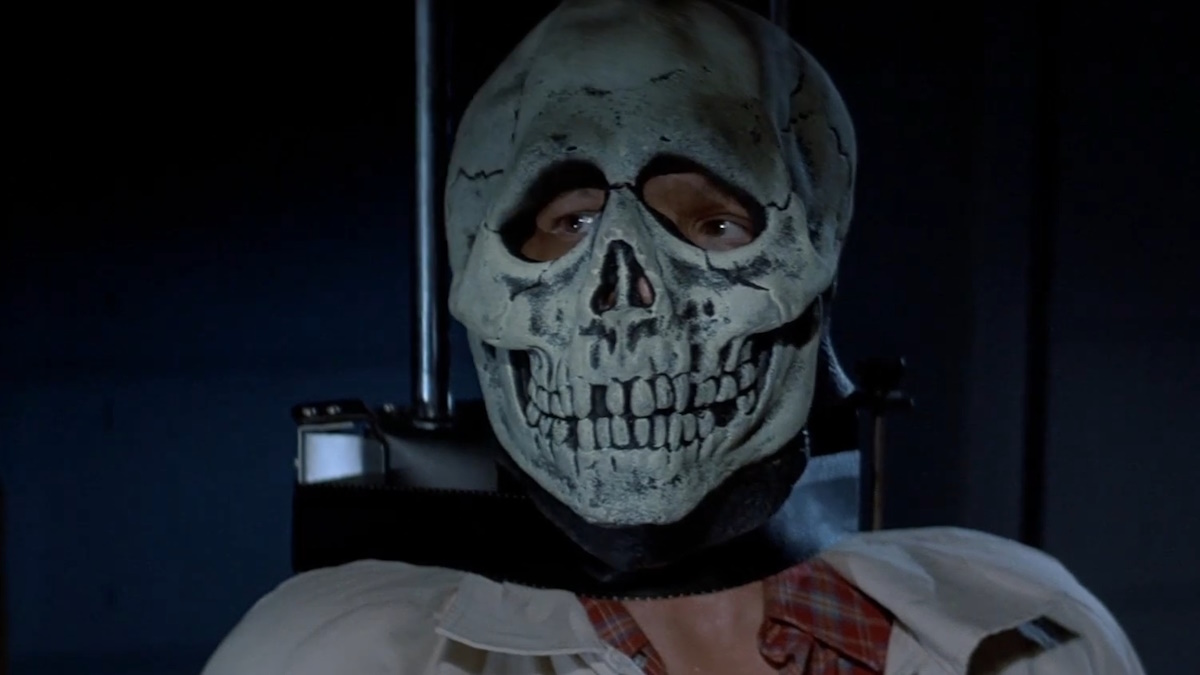
The black sheep of the Halloween franchise, Halloween 3: Season of the Witch is also one of the series’ best in spite of (and maybe even, because of) the absence of Michael Myers. Directed by Tommy Lee Wallace, Halloween 3: Season of the Witch follows a doctor who obsessively investigates a hot new fad of Halloween masks which may be connected to an ancient and evil cult. A striking piece of commentary on consumerism and the toxic influence of mass media, Season of the Witch is a worthwhile piece of sci-fi horror that carves its own legacy in the canon of Halloween season favorites.
30. Gojira (1954)
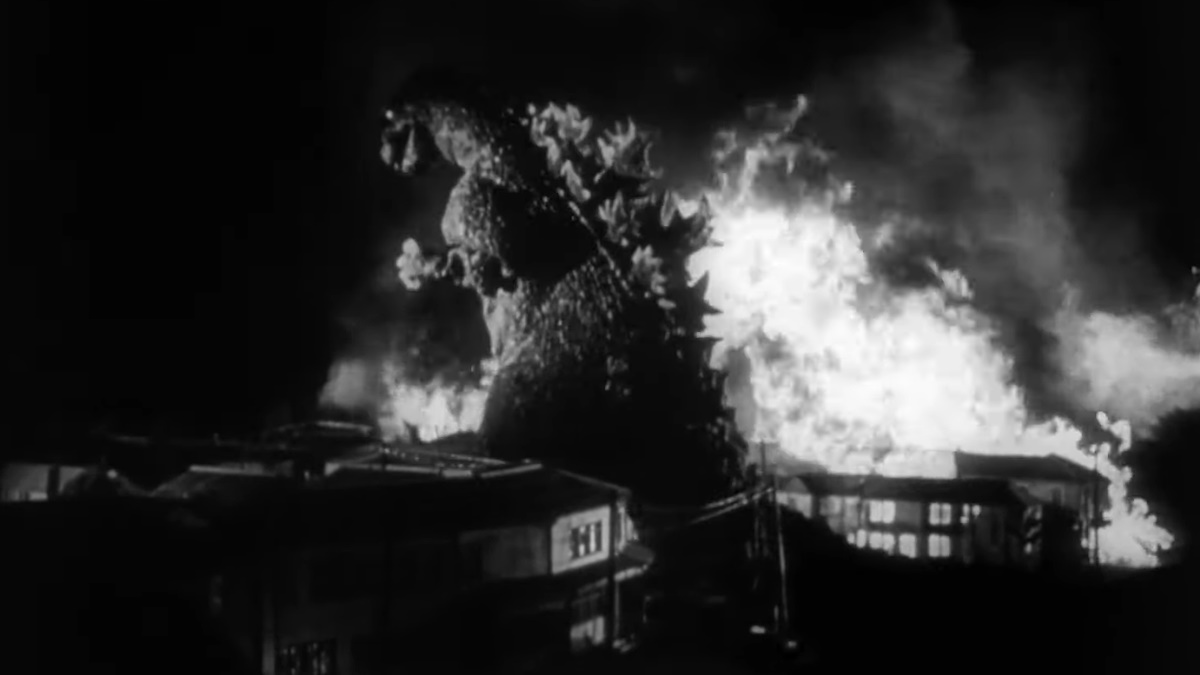
You’ve seen him crush a thousand buildings. You’ve seen him wrestle Ghidora and Mothra. He’s sold you Dr. Pepper and Snickers, fought the Justice League and Power Rangers, and even dunked on Charles Barkley. But Godzilla is a monster, an unholy beast who exists as a warning against mankind’s nuclear armaments. His first outing remains his best, 1954’s Gojira directed by Ishiro Honda. Emerging from the seas to wreak havoc on post-war Tokyo, Gojira is a surprisingly meditative monster flick where the atrocities of man and kaiju are near indistinguishable. Some Godzilla movies are thrilling, others are purely entertaining. And we’ll give it to the 2014 Hollywood remake for reinforcing his horrifying awe. But almost no other Godzilla flick is as scary as Gojira.
29. They Live (1988)
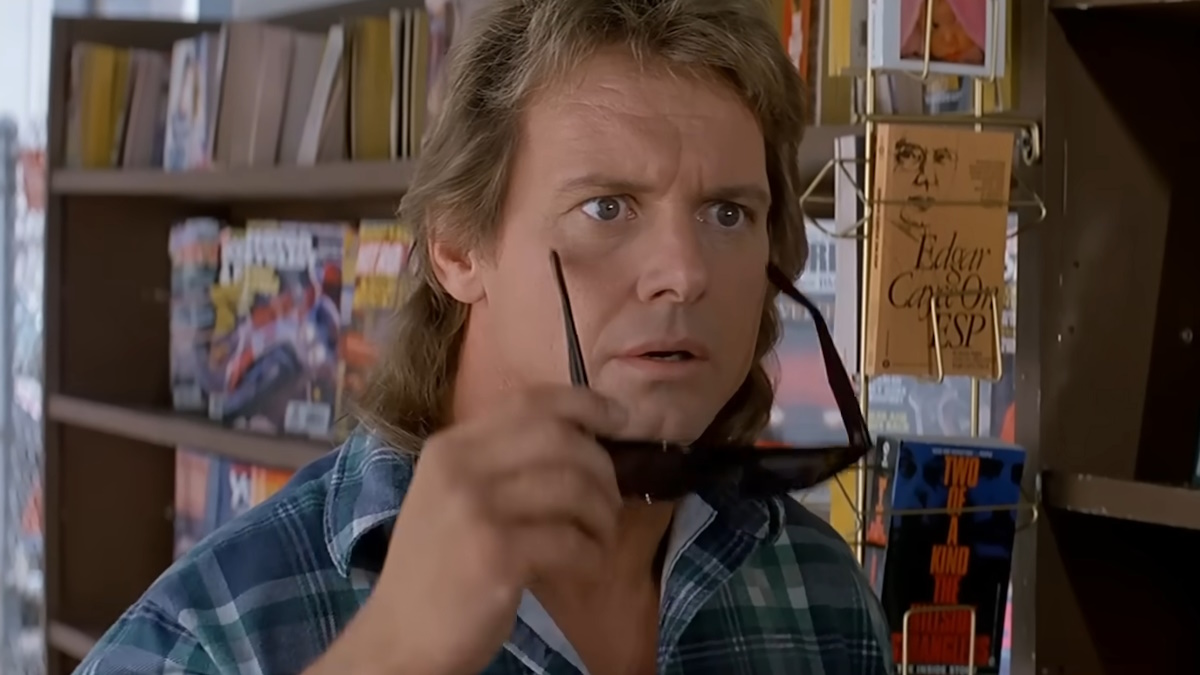
“Rowdy” Roddy Piper is here to kick butt and chew bubble gum – and he’s all out of bubble gum. Though more amusing than it is frightening, They Live stars wrestling icon Roddy Piper as a drifter who stumbles upon a pair of sunglasses that reveal to him a horrifying secret: The world’s ruling elite aren’t humans, but aliens capable of mind control who demand conforming to the status quo via the power of subliminal messaging. While modern audiences have distorted the movie’s social satire, Carpenter conceived of the movie from his own dissatisfaction towards Reagan-era policies and increased commercialization in pop culture.
28. The Substance (2024)
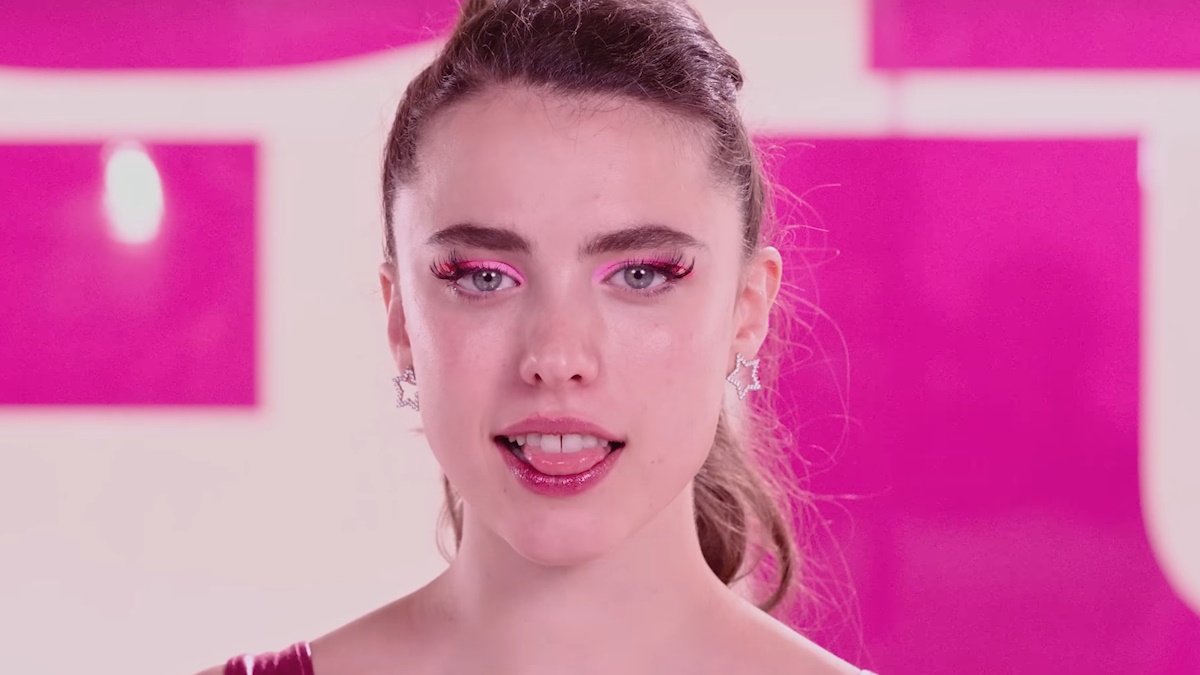
Remember to respect the balance. Released to tremendous fanfare in 2024, Coralie Fargeat’s The Substance is part grotesque body horror, part Aesop fable that explores the violent societal pressures imposed onto women. The movie stars Demi Moore as faded actress turned aerobics personality Elisabeth Sparkle who is drawn into taking the experimental “Substance” – an illegal experimental serum that allows users to become their younger, ostensibly “more beautiful” selves. (Margaret Qualley co-stars as Elisabeth’s “younger” alter ego Sue.) But as Elisabeth abuses the Substance, her body starts to reject the formula, ultimately transforming her and Sue into something else entirely. A blood-smeared portrait of the abject destructiveness women undertake to seem more “pure,” The Substance splatters over all expectations.
27. Mad God (2021)
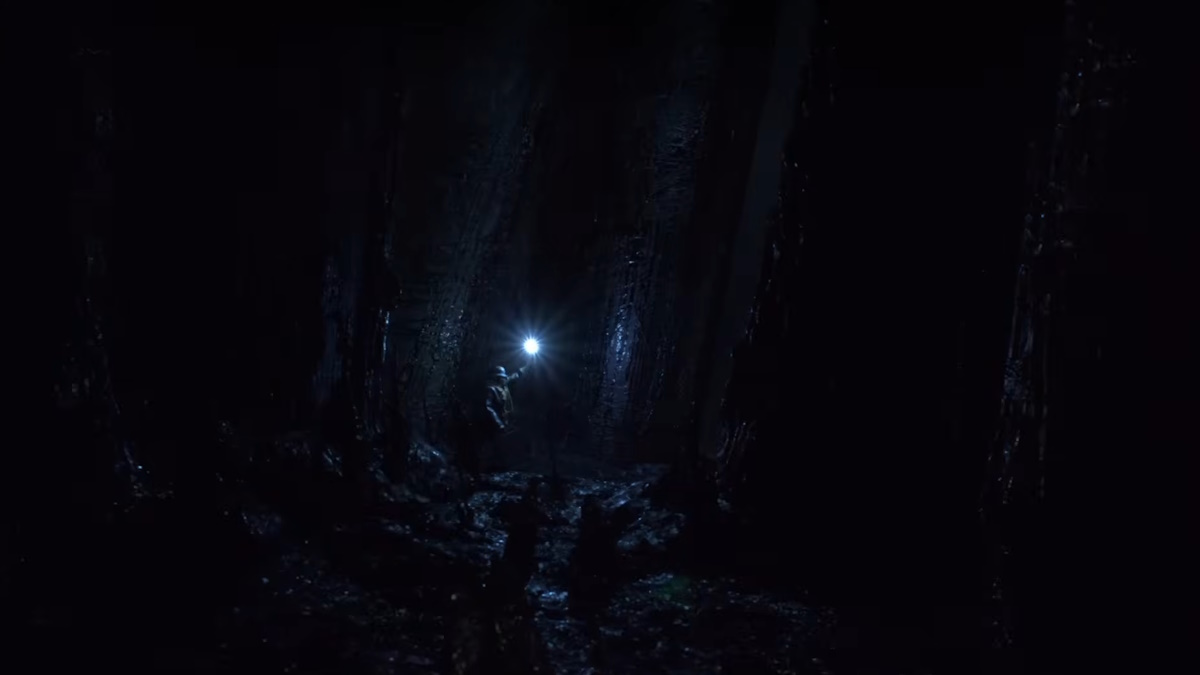
A stop-motion masterpiece some 30 years in the making, Mad God is the creation of Phil Tippett, a veteran VFX producer with credits on Star Wars, Jurassic Park, and RoboCop. In his own experimental feature from 2021, an anonymous wandering assassin dredges through a pitch-black underworld populated by horrifying monsters. A throwback to the artistry of Ray Harryhausen and ’80s era Tim Burton but wholly its own thing, Mad God is a singular achievement that dwells in the darkness where we long thought our monsters were left behind.
26. Synchronic (2019)
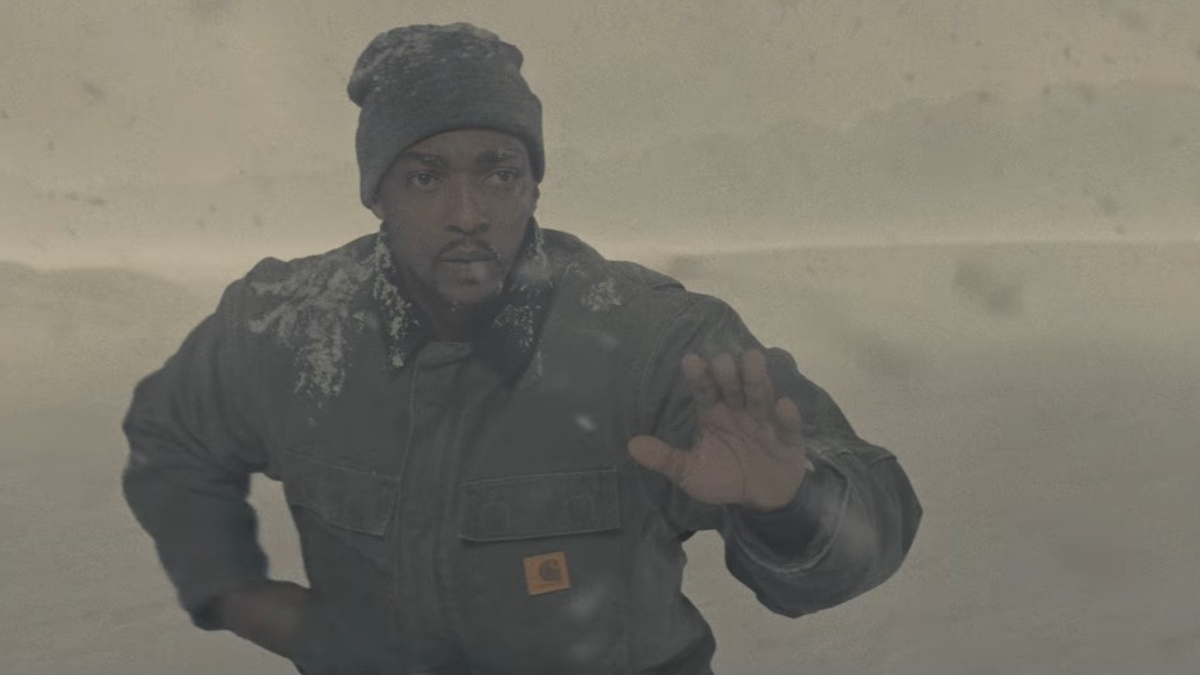
Can time travel be scary? Synchronic dares to bring a dash of darkness to Back to the Future-style adventures. Anthony Mackie stars as a terminally ill New Orleans paramedic who has seen an increase of bizarre deaths linked to a new street drug called Synchronic, which induces the ability to briefly travel in time. When his best friend’s daughter goes missing at a party where Synchronic was handed out, Mackie’s character Steve takes advantage of his final days to rescue not just his niece but his friendship with heartbroken coworker Dennis (Jamie Dornan). The rare time travel movie that feels cold and grim, Synchronic is a real trip.
25. Tetsuo: The Iron Man (1989)
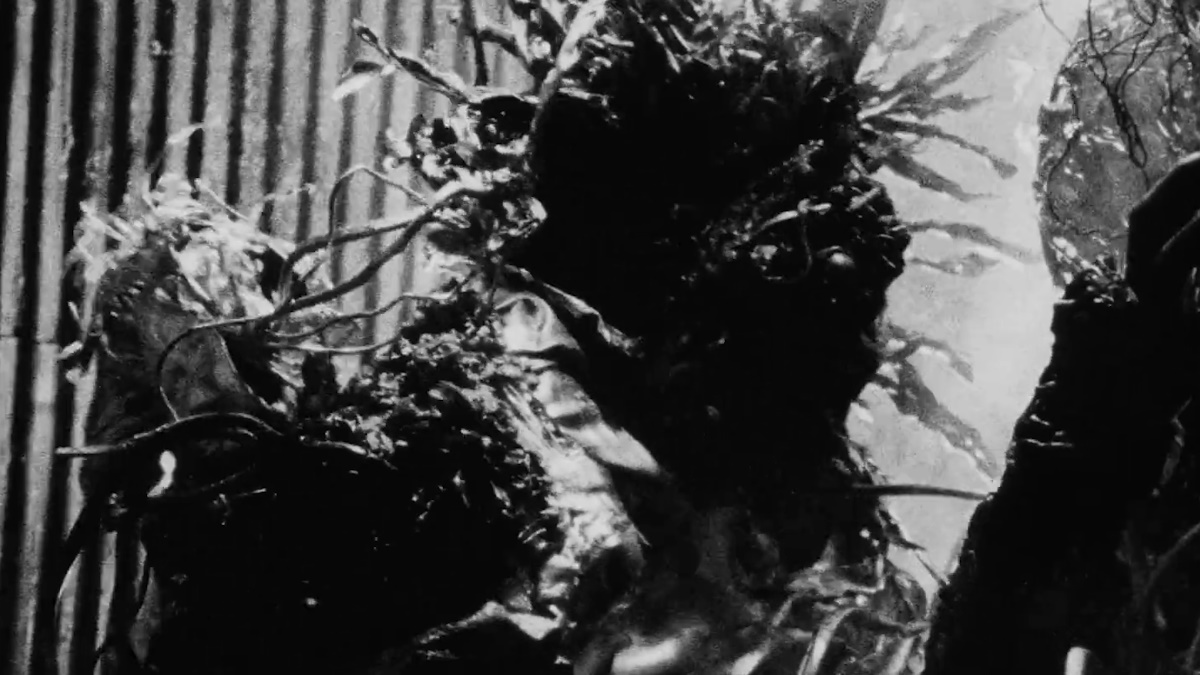
Underground Japanese auteur Shinya Tsukamoto made his feature debut with 1989’s Tetsuo: The Iron Man. The movie follows a salaryman who wakes up one day to find himself slowly turning into a monster made of metal. He connects with a hit-and-run victim, who finds she’s also suffering from the same condition. An enthralling urban nightmare drenched in black and white, Tetsuo: The Iron Man serves as an elaborate metaphor for intimacy and connection in a hostile world. The movie cemented Tsukamoto as a respected visionary who belongs in the same conversation as filmmakers like Takashi Miike, David Cronenberg, and David Lynch.
24. Videodrome (1983)
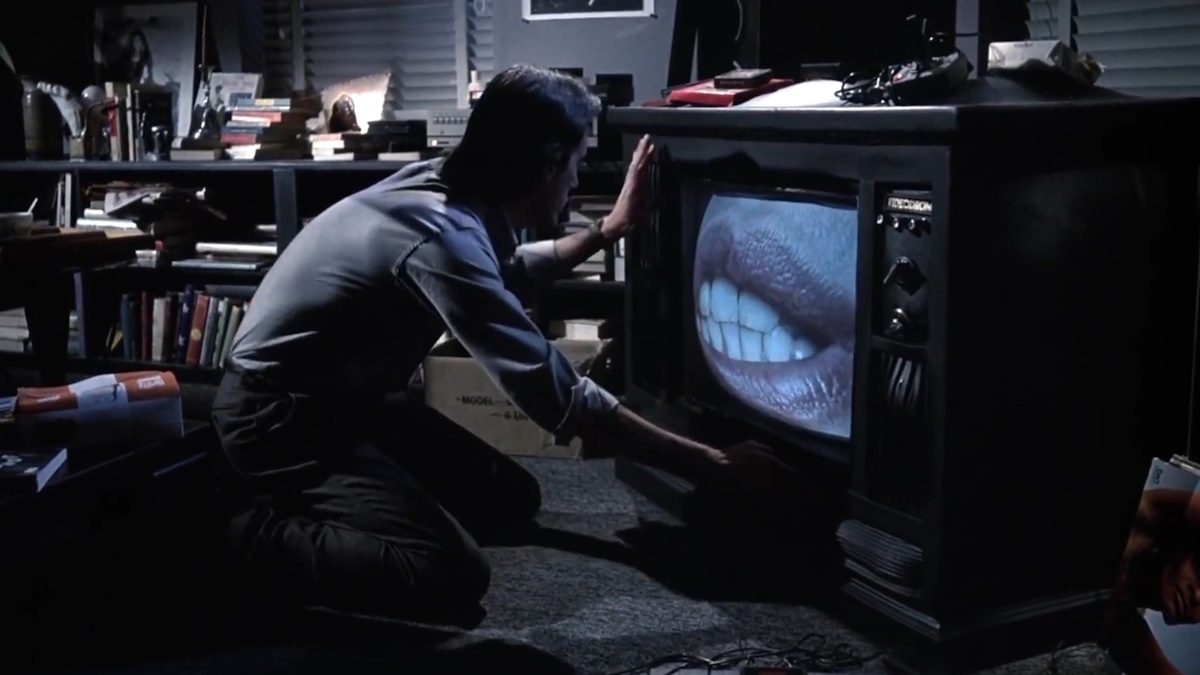
In 1983, David Cronenberg anticipated the horrors of media consumption and its power to influence for the worse. In this science fiction horror classic, James Woods plays a TV station producer who grows obsessed with an illegal broadcast signal that plays violent – and totally real – snuff films involving nudity, torture, and death. As Woods’ character gets closer to the source, his reality begins to unravel. Though Videodrome was conceived to be timely in its era of VHS tapes and satellite signals, it remains relevant in the age of the internet and algorithm-driven social media, a vision of a dim world lit by screens that serve to satisfy our most secret desires.
23. 28 Days Later (2002)
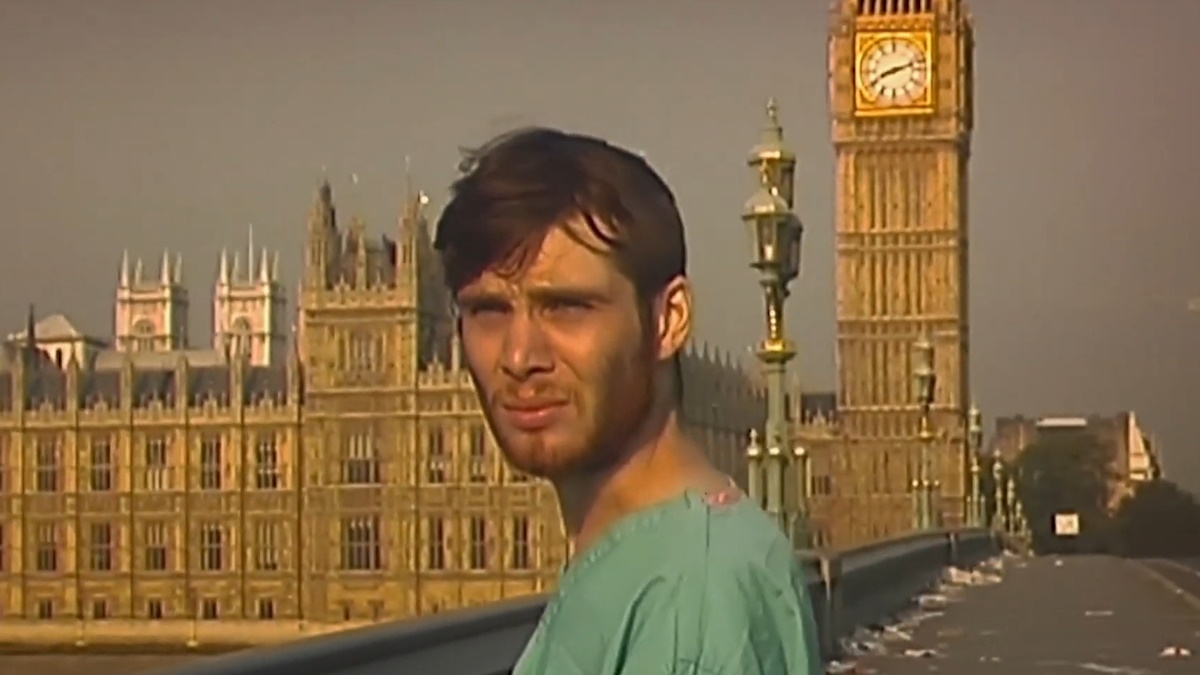
The movie that redefined zombies for the new millennium, Danny Boyle’s 28 Days Later broke from the genre’s tradition of slow-moving, brain-dead husks to feature hordes of undead who were quick on their feet. But besides its novel take on flesh-eating undead, Boyle’s movie – also written by Alex Garland – stands as a startling portrait of society in the immediate aftermath of collapse. Future Oscar recipient Cillian Murphy stars as a comatose man who discovers all of metropolitan London a wasteland, populated only by rabid infected people and stray survivors. Adding to the movie’s grimey vibes is its low-fi look; the movie partially filmed with consumer-grade digital camcorders in order to quickly film in busy areas. A cult classic of the 2000s, 28 Days Later is recognized today for reigniting widespread fascination with zombies.
22. Signs (2002)
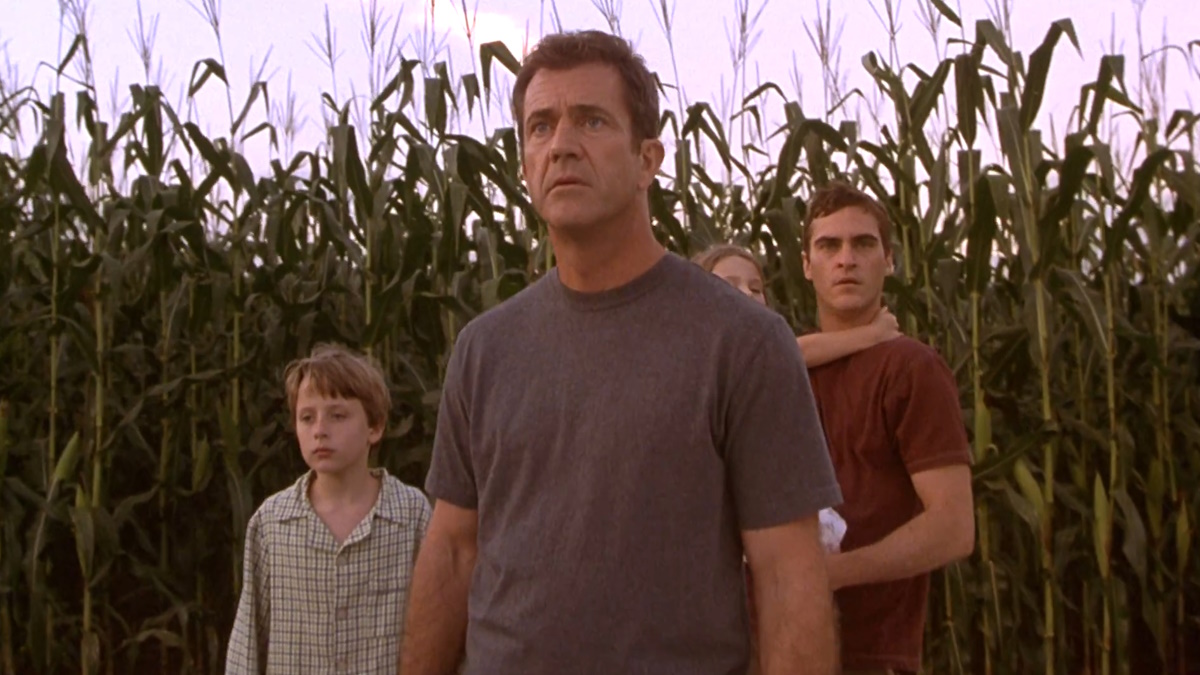
M. Night Shyamalan’s treatise on faith against the unknown, Signs is a memorable early 2000s classic that reinterprets pulpy alien invasion stories into something more graceful, thoughtful, and ethereal. Mel Gibson plays a former priest whose rural home becomes the sight of bizarre crop circles. Not long after that, strange visitors from another world begin to haunt the world everywhere. While audiences more concerned with meticulous worldbuilding and logic often poke holes at Signs, its eerie atmosphere, unexpected humor, and surprising faith-affirming story make it a most unusual sci-fi horror that breathes new life into a worn-out premise.
21. The Invisible Man (2020)
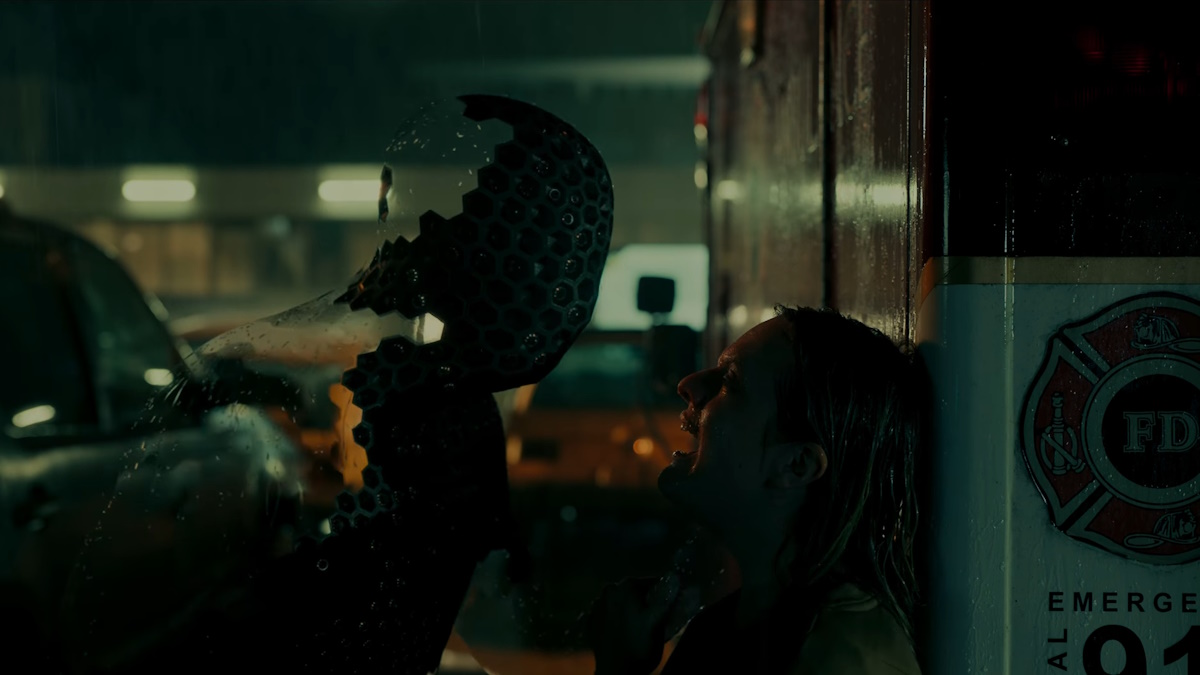
When the Dark Universe collapsed, Blumhouse was there to pick up the pieces. Leigh Whannell updates the 1933 classic The Invisible Man with cutting-edge designs and contemporary anxieties, telling a brand new story about a woman’s fight for her own survival against an abusive (and obscenely wealthy) former lover. Elisabeth Moss takes charge in this #MeToo-oriented 21st century update to the Universal Horror classic, unearthing totally new screams out of unseen evil that could be anywhere, at any time.
20. The Fly (1986)
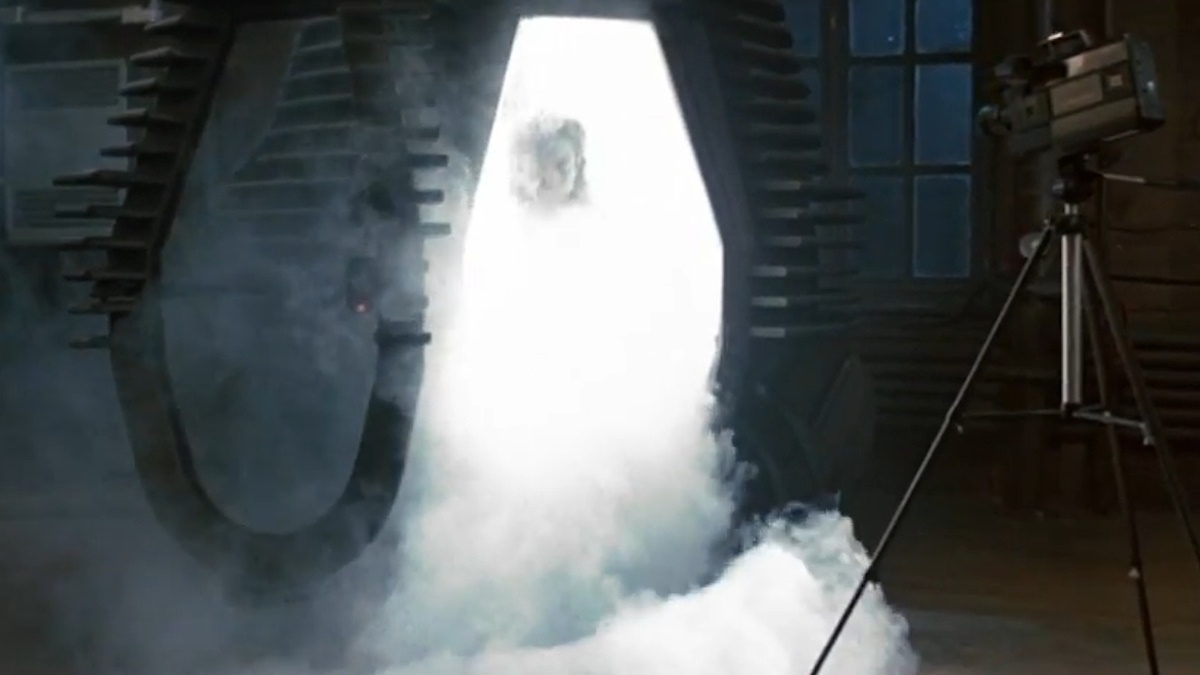
If you’ve heard the tagline, “Be afraid. Be very afraid,” you have The Fly to thank. A buzzzzzz-y ’80s masterpiece from body horror master David Cronenberg, Jeff Goldblum plays a scientist who finds a way to turn into a half-human, half-fly hybrid creature after an experiment goes wrong. The second adaptation of George Langelaan’s 1957 short story that outdoes its 1958 predecessor, The Fly is a creepy monster movie classic that serves as an ideal introduction to Cronenberg’s particular brand of body horror.
19. War of the Worlds (2005)
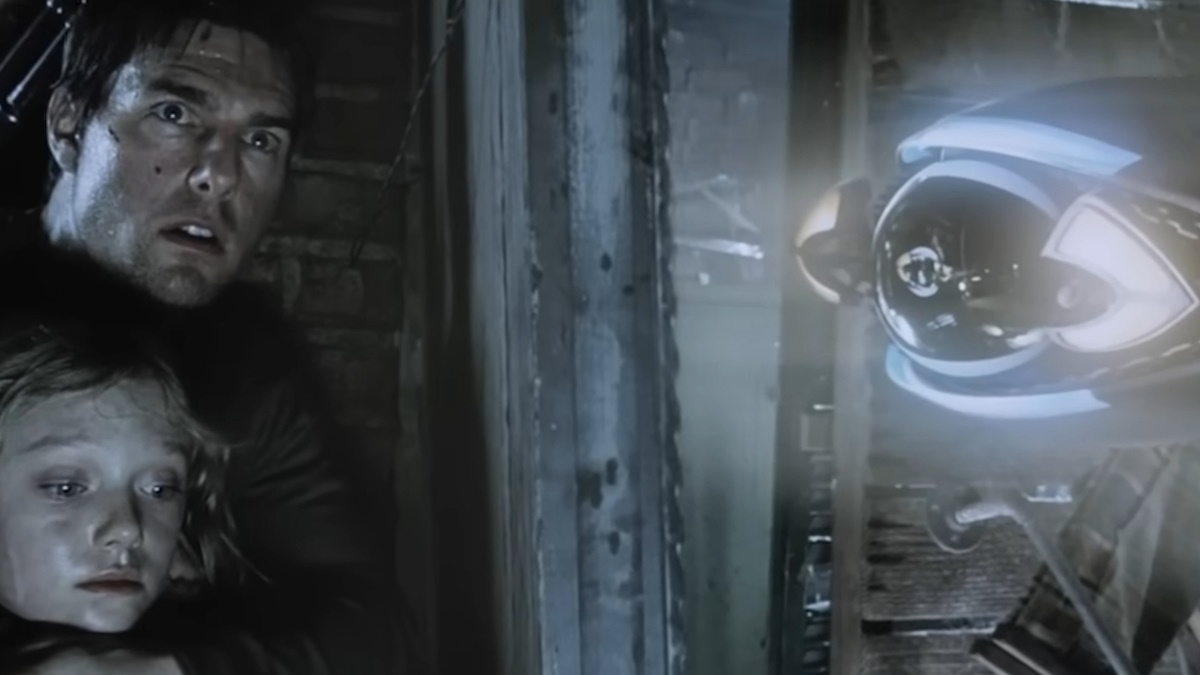
There is no shortage of movies and shows based on H.G. Wells’ sci-fi classic War of the Worlds. But if there’s any that keeps the spirit of Wells’ book while being assured of its own identity, it’s Steven Spielberg’s modernized take from 2005. A horror-thriller focused on themes of family and forgiveness, Tom Cruise stars as an estranged father who races to reunite his children with their mother amid the chaos of an alien invasion. Lest you think Spielberg’s brand of sci-fi is bland and safe, War of the Worlds’ harrowing violence – and very unnerving sound design – will make you rethink that entirely.
18. Nope (2022)
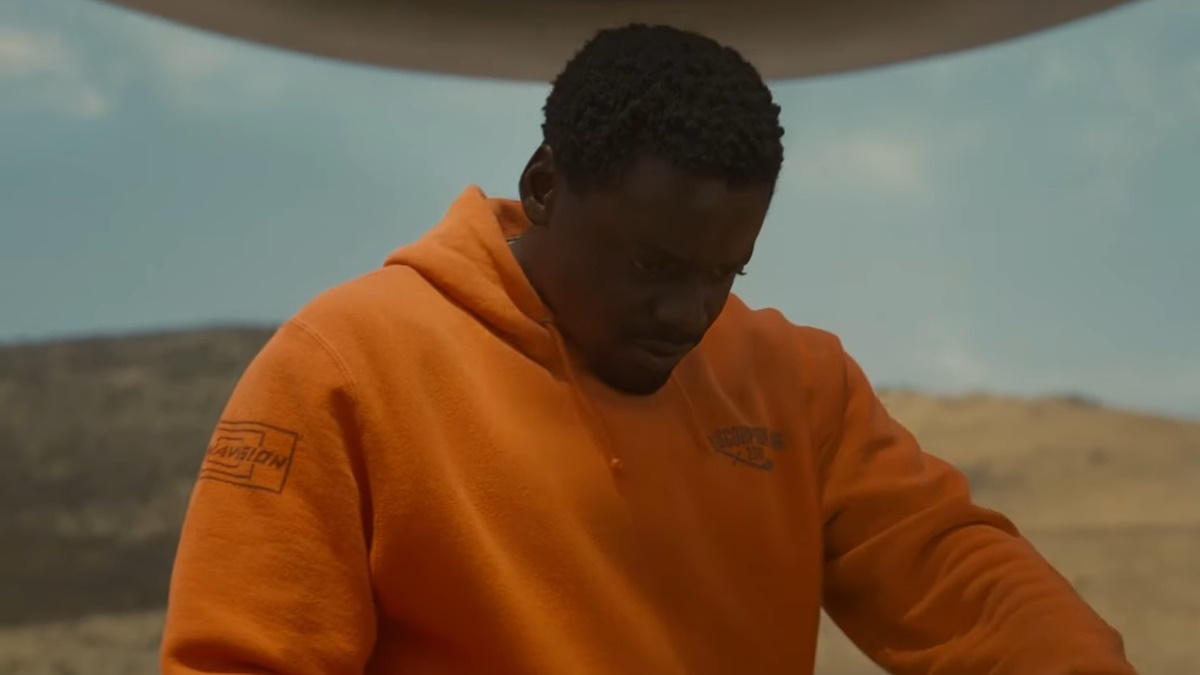
Since his filmmaking debut Get Out released in 2017, Jordan Peele has maintained a strong batting average, synonymous with socially conscious pulp horror that draws a mainstream crowd. In 2022, Peele returned to the screen with his third feature Nope, a simmering and sometimes funny sci-fi horror. Nope follows two sibling horse wranglers (Daniel Kaluuya and Keke Palmer) who discover a predatory alien hiding in plain sight and race to capture proof of its existence. Nope is a multi-layered metaphor about the violence of man’s arrogance, chasing dreams, and the systemic consumption of people, all while dressed in the tassel vests of classic Westerns and early Golden Age sci-fi.
17. The Host (2006)
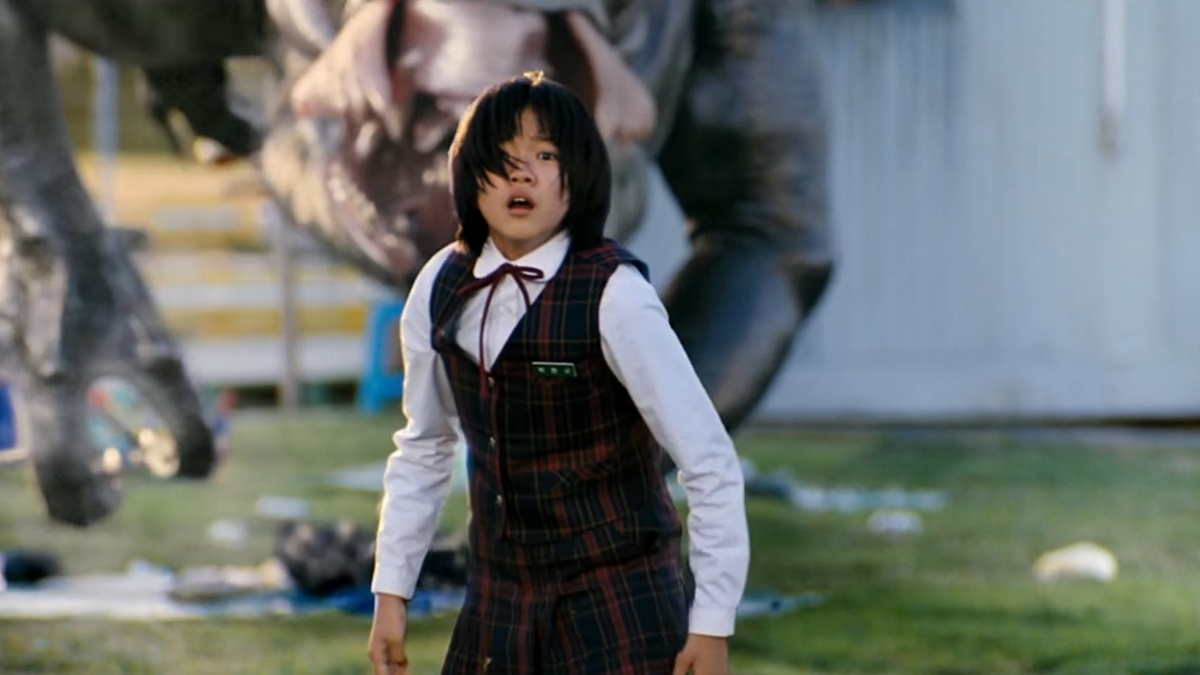
Long before his 2019 feature Parasite won critical acclaim and Oscar gold, Bong Joon-ho unleashed a monster of the Korean New Wave in The Host. Released in 2006 and inspired by a real-life public health scandal in South Korea, The Host follows a family who race to rescue their daughter after she’s inadvertently kidnapped by a monster that suddenly terrorizes Seoul. Acclaimed as one of the greatest monster movies of the 21st century, The Host’s secret weapon lies not in its thrilling spectacle but the heart-wrenching drama of a family in disrepair who seek to make themselves whole again.
16. A Quiet Place (2018)
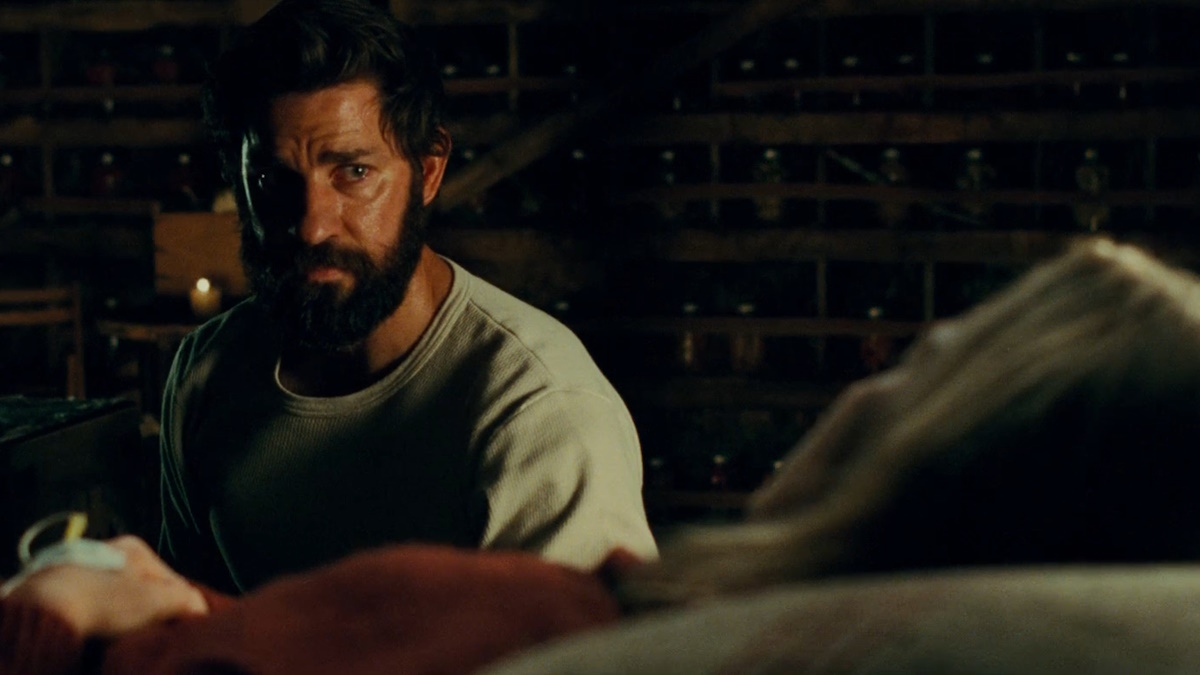
Silence is more than golden, it’s a life-saver. After years of playing goofy Jim in the NBC sitcom The Office, John Krasinski emerged as a filmmaker of note with his 2018 horror hit A Quiet Place, his first in the genre realm. Set in a post-apocalyptic world where blind monsters locate human prey by sound, A Quiet Place chronicles the efforts of a traumatized family (led by Krasinksi and his real-life spouse, actress Emily Blunt) who try to survive in their hushed reality. A modern monster horror that explores themes of parenthood, grief, and difficulties to communicate, A Quiet Place set a new standard for mainstream popcorn horror.
15. Scanners (1981)
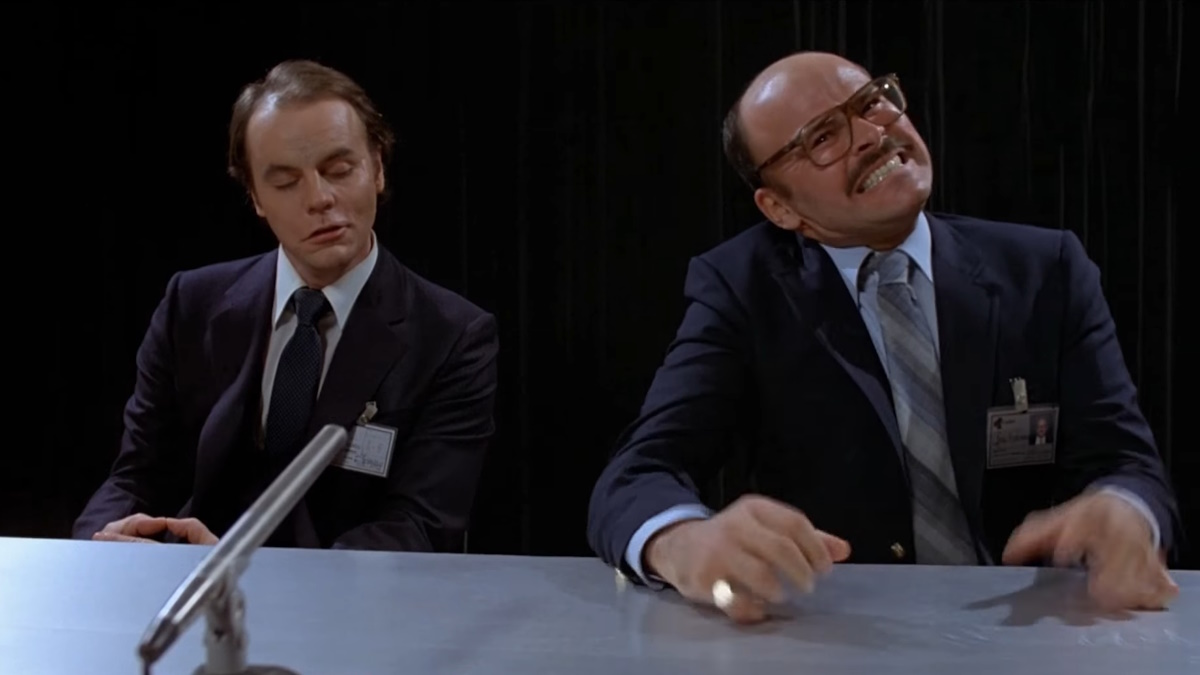
This cult sci-fi horror from the ’80s will really blow your mind. (You’ll know what I mean.) From writer/director David Cronenberg, Scanners is a blend of body horror and espionage thriller, its story about a vagrant psychic (played by Stephen Lack) who is recruited into a mission to stop another renegade psychic, or “scanner,” from killing others just like them. Violent and weird in all the best ways, Scanners was the movie that introduced most of the world to David Cronenberg – and the world of horror hasn’t been the same since.
14. Color Out of Space (2019)
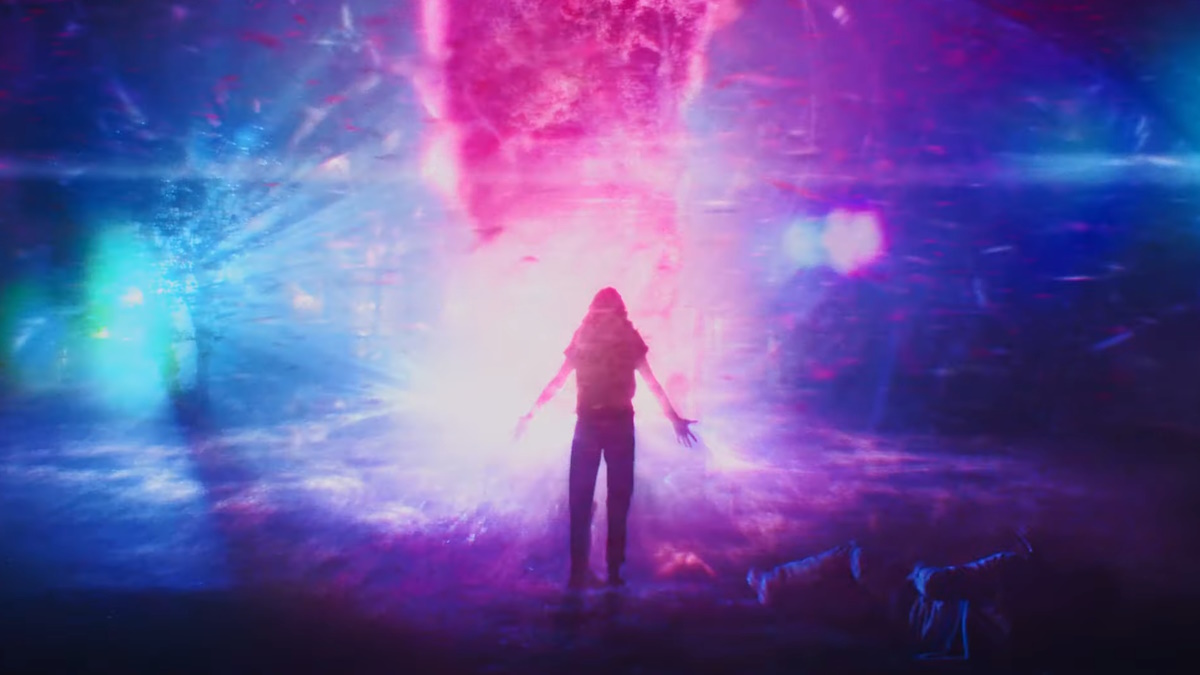
Based on the short story by H.P. Lovecraft, Color Out of Space stars Nicolas Cage as a family man whose farmland home is struck by a meteorite carrying an alien organism. Devolving into a neon hallucinogenic nightmare, Color Out of Space is truly far out with a gonzo Nic Cage losing his marbles, to our delight. Not only is Color Out of Space one of the best movies in Cage’s late career renaissance – ranking alongside movies like Pig, Mandy, Willy’s Wonderland, and The Unbearable Weight of Massive Talent – but it’s maybe one of the best cinematic adaptations of Lovecraft ever made.
13. Upgrade (2018)
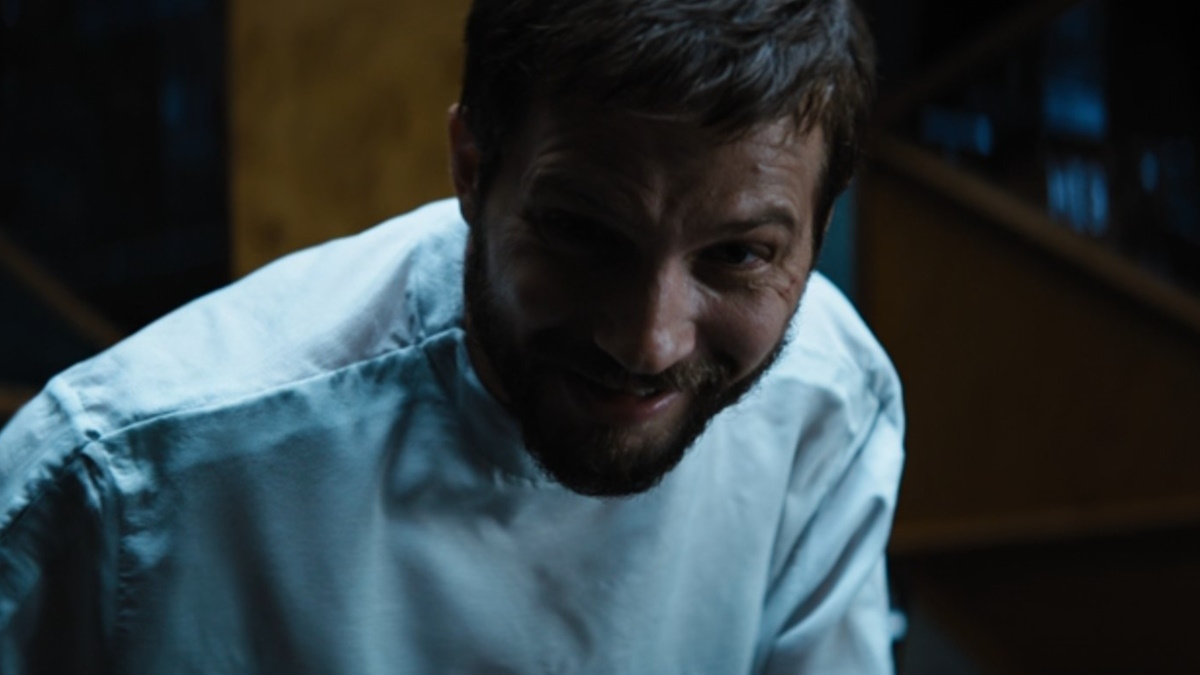
If you lost everything, how far would you go to get revenge? A basic setup gets razor-sharp treatment from director Leigh Whannell in his 2018 cult horror Upgrade. Logan Marshall-Green stars as an auto mechanic who loses both his ability to walk and his beloved wife in a single act of crime. A seemingly sympathetic tech magnate implants in the man a bleeding-edge computer chip loaded with a sophisticated A.I. that helps him walk again. Not long after does the A.I. compel the man to exact bloody revenge on the people who destroyed his life. Like John Wick crossed with Blade Runner, Upgrade explores a frightening possibility of losing oneself to the future.
12. Pulse (2001)
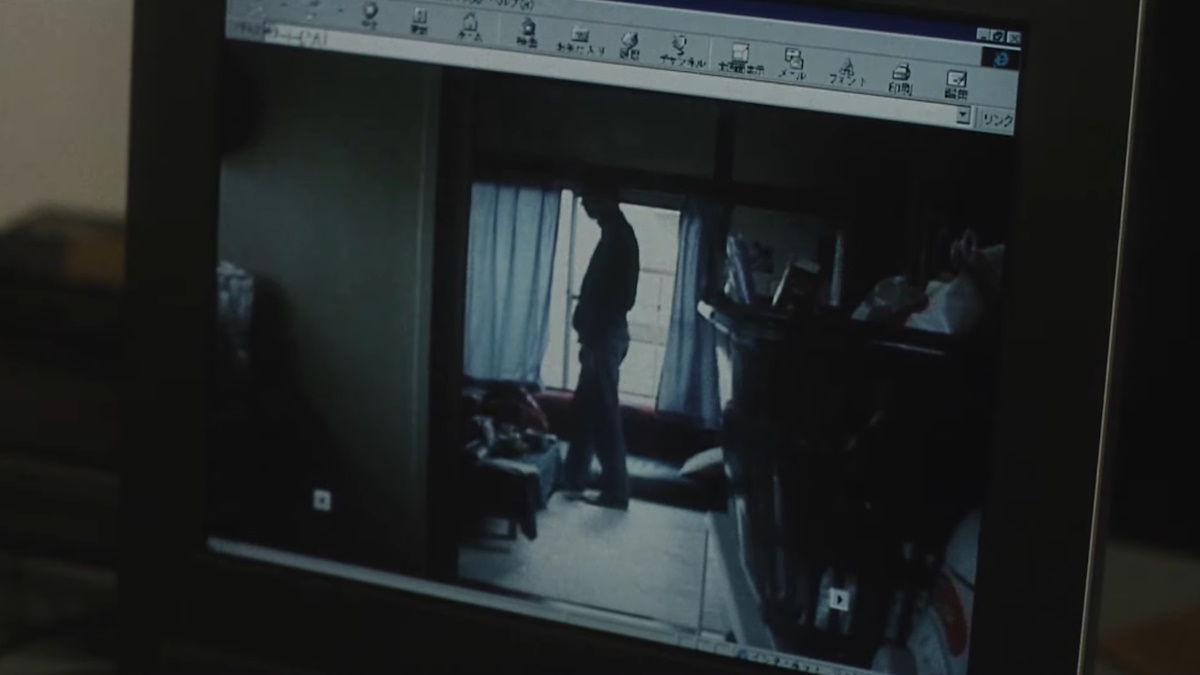
As personal computing became an integral part of people’s homes around the world, most movies anticipated how exciting it was to be digitally connected. But in Japan, some tech thrillers like Perfect Blue, One Missed Call, Suicide Club, and Ringu envisioned how frightening it is to be so inundated by screens. Standing above them all is the 2001 cult hit Pulse, directed by Kiyoshi Kurosawa. Set against an uptick in young adult suicides in Tokyo, three strangers try to solve the mystery behind evil spirits who dwell in the internet. In defiance to other J-horrors of its era that spilled blood like geysers, Pulse’s balance of visceral restraint with bone-chilling tension make it a delectable dish of atmospheric horror and dread that few movies have matched before and since.
11. Cloverfield (2008)
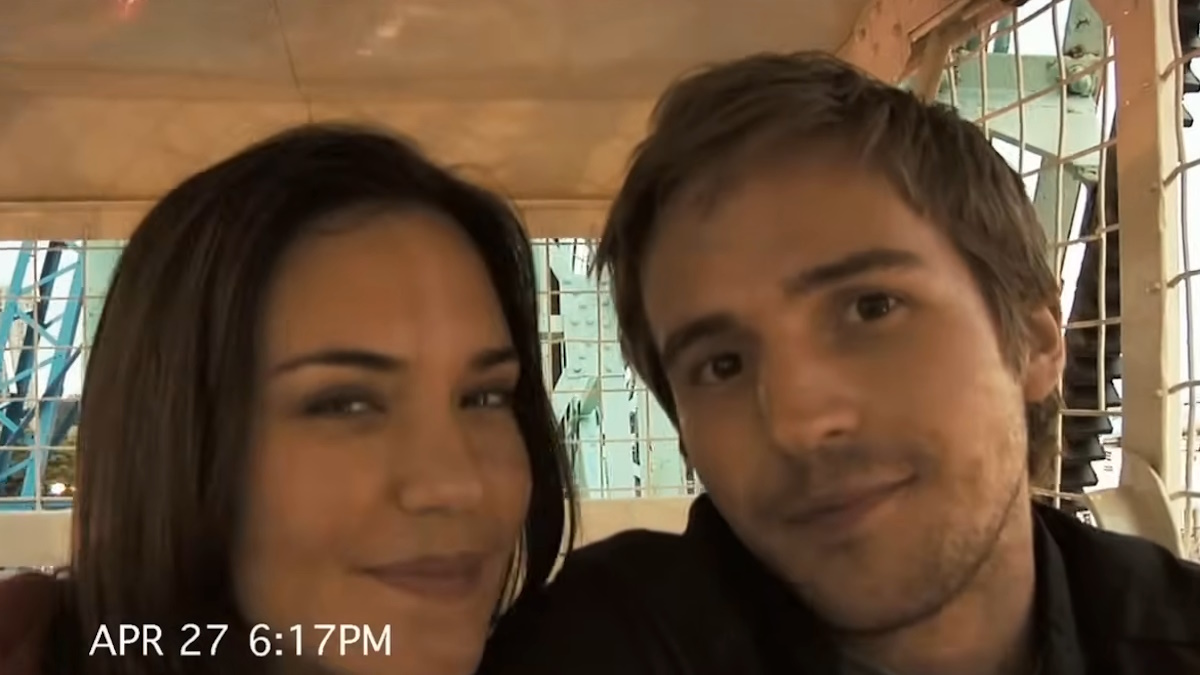
If you saw Michael Bay’s Transformers in theaters in 2007, chances are you caught the iconic trailer to Cloverfield. A found-footage disaster flick from director Matt Reeves and producer J.J. Abrams, Cloverfield blends The Blair Witch Project with Godzilla as it follows several hip 20-something Manhattanites (with some familiar faces, including Lizzy Caplan, T.J. Miller, Ben Feldman, and Odette Yustman) whose farewell party for one of their own is interrupted by the emergence of a huge monster. Mixing the classic kaiju genre with contemporary fears of terrorism and domestic destruction à la 9/11, Cloverfield is a dizzying (literally) portrait of modern day survival.
10. Under the Skin (2013)
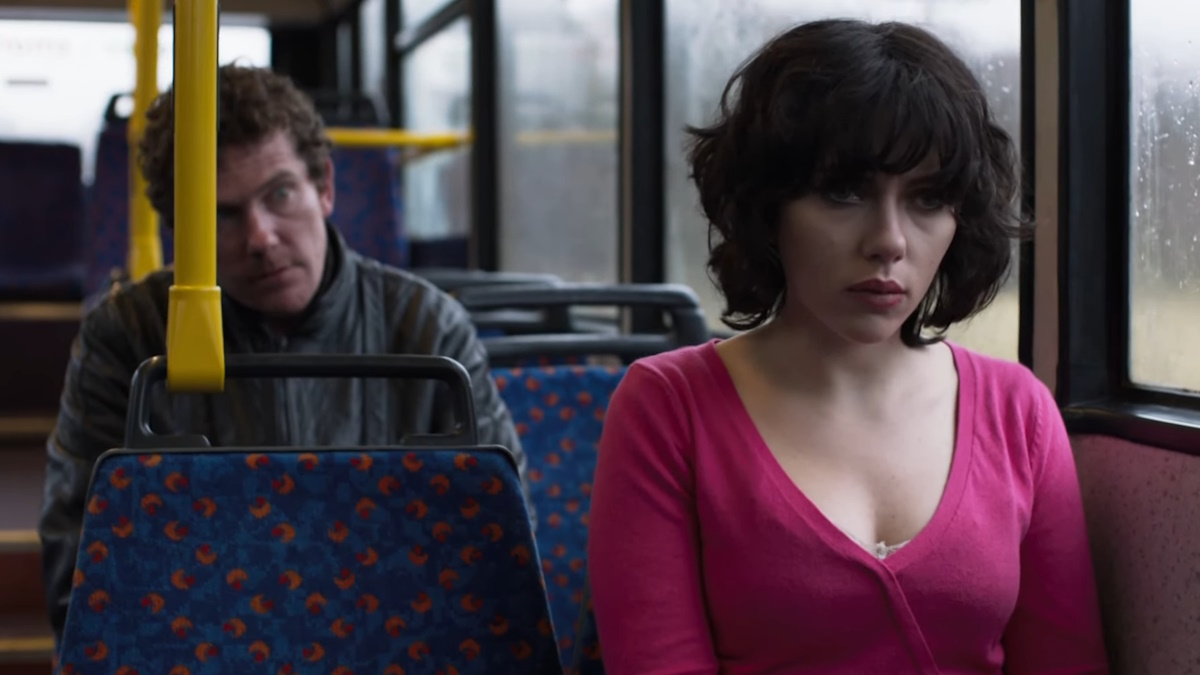
Scarlett Johansson goes from Avenger to predatory alien in Jonathan Glazer’s nightmarish indie sci-fi Under the Skin. An adaptation of Michel Faber’s novel of the same name, Johansson plays a man-eating alien in the disguise of a beautiful woman whose favorite food is lonely men in Scotland. Opaque but not obtuse, Under the Skin is a challenging movie that revels in its hostile surrealism and mystifying stoicism, with Johansson a perfect fit in the role of an impossibly gorgeous creature with evil intent.
9. Invasion of the Body Snatchers (1978)
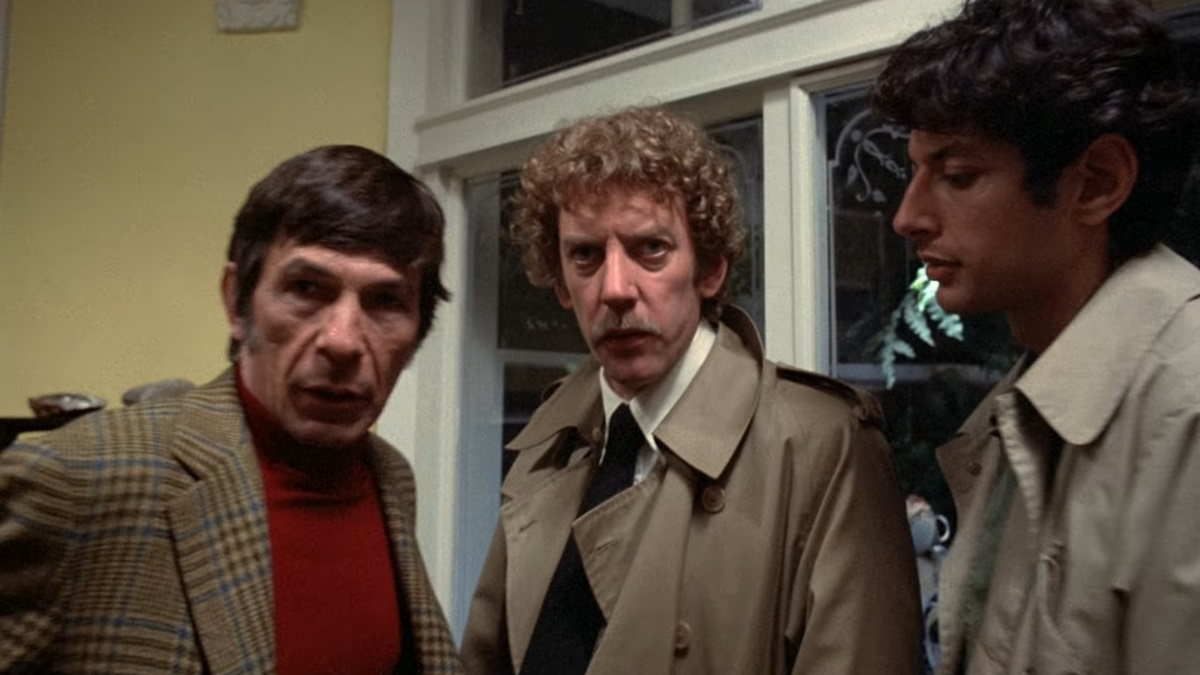
Director Philip Kaufman and writer W.D. Richter had their work cut out when they took on the challenge of remaking the 1956 classic Invasion of the Body Snatchers. But they wound up outdoing themselves, with their 1978 version slowly drawing critical acclaim as one of the finest sci-fi horror movies ever. Kaufman’s delicate approach brings the terror of doppelgänger aliens to populated and progressive San Francisco, with two government health inspectors – played by Donald Sutherland and Brooke Adams (you’ve got to see what she does with her eyes) – who believe a widespread increase in sharp personality changes are more than just a case of bad moods. Not simply a cheap copy, the ’78 Invasion of the Body Snatchers takes the clay of a familiar story and molds it into something new… and scarier. The ending is a real scream.
8. Event Horizon (1997)
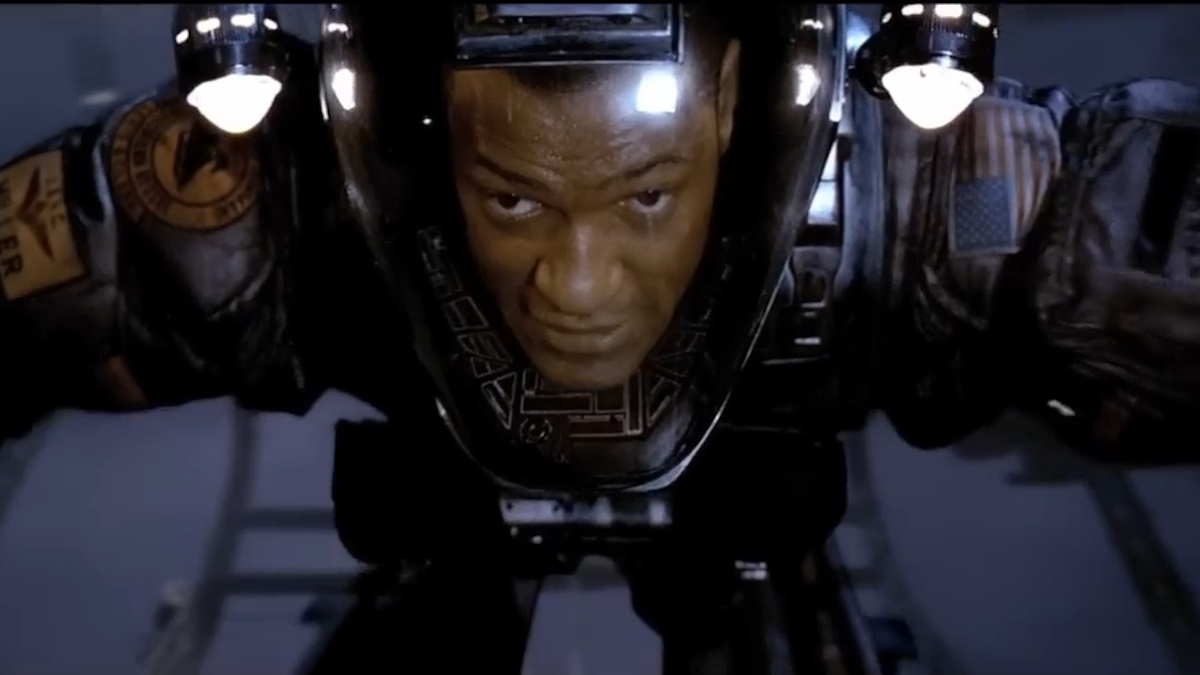
Following in the tradition of Ridley Scott’s Alien, Paul W. S. Anderson’s sci-fi horror Event Horizon tells a rather familiar story – abandoned spaceship, a crew sent to investigate, all hell breaks loose – but it’s the execution that makes it special. In Event Horizon, a spaceship thought to be lost in deep space suddenly returns in orbit around Neptune. A rescue crew – led by The Matrix’s Laurence Fishburne – is sent to investigate the derelict ship, only to learn it isn’t derelict at all. Also starring Sam Neill, Kathleen Quinlan, Joely Richardson, Sean Pertwee, and Jason Isaacs, Event Horizon didn’t have the muscle to compete against Titanic at the box office but has survived in the outer rims thanks to a dedicated fanbase who insist on its reputation as an underrated ’90s gem.
7. Possessor (2020)
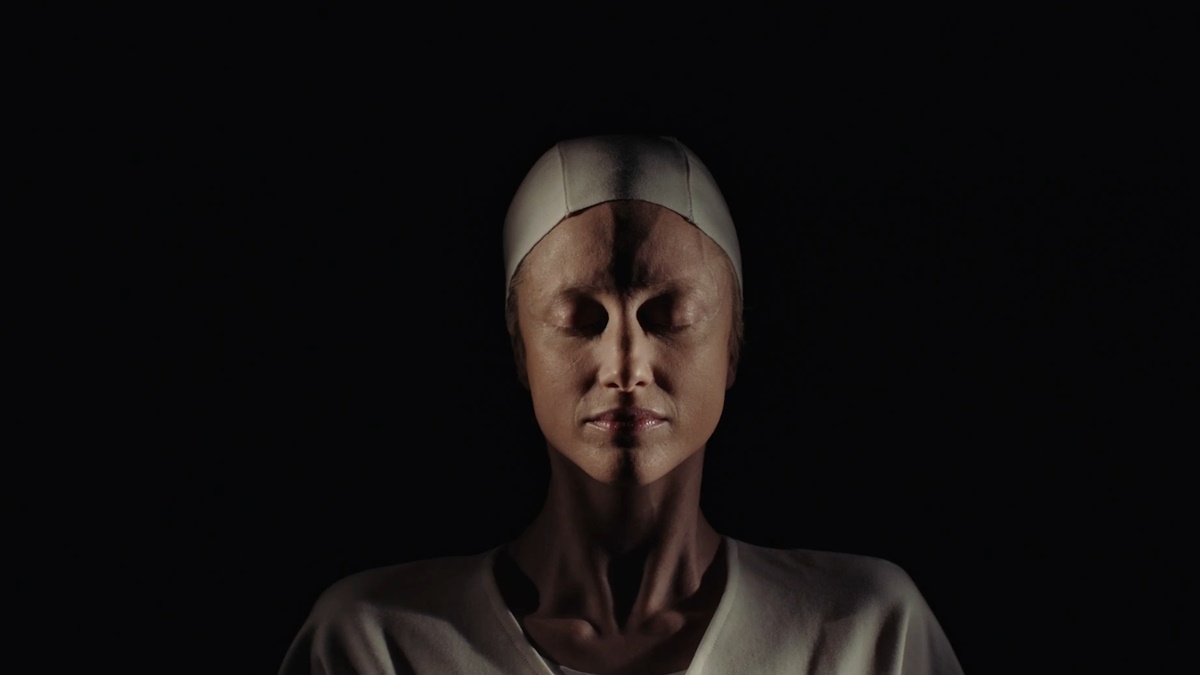
David Cronenberg taught his son well. From the mind of filmmaker Brandon Cronenberg comes Possessor, an unnerving science fiction horror about an assassin (Andrea Riseborough) who carries out her assassination gigs by artificially possessing the bodies of other people. But during her latest job, it’s the assassin who ends up in danger when the malevolent “host” (Christopher Abbott) starts to fight back. Possessor is a truly paralyzing piece of sci-fi horror that provokes and bombards the senses, a movie destined to find its place in the canon of the greats.
6. Altered States (1980)
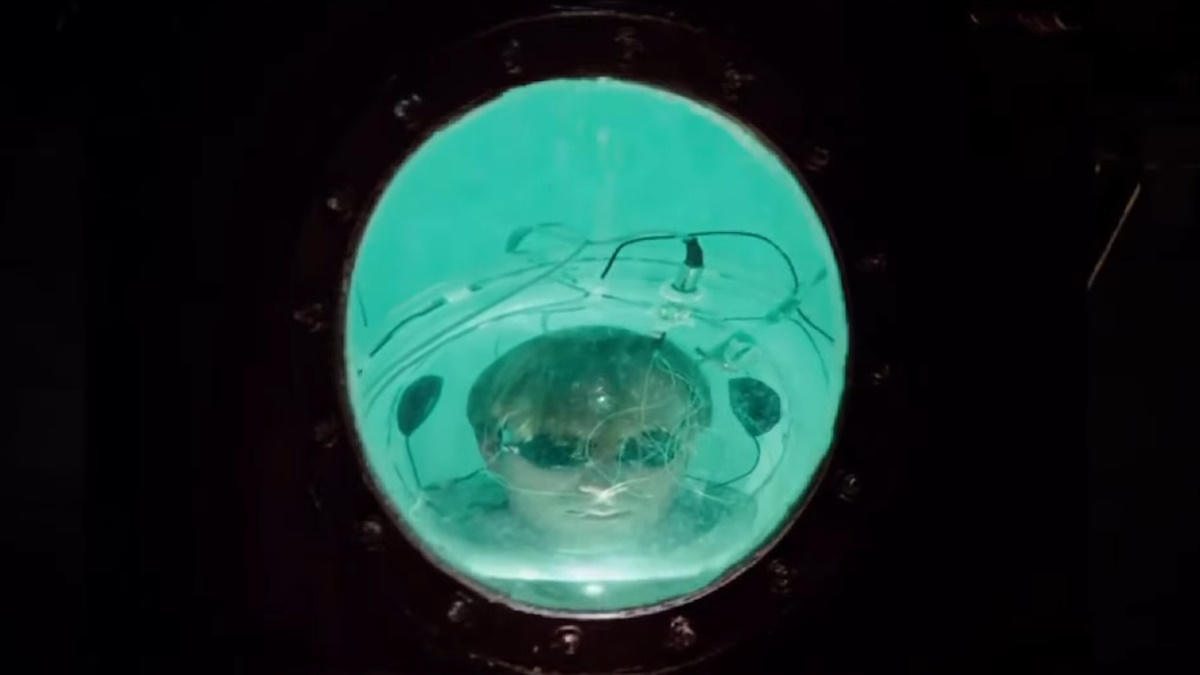
When it comes to ’80s horror, most people remember the teen slashers and demonic possessions. But few remember Altered States. A mesmerizing piece of psychedelic sci-fi horror, Altered States stars William Hurt as a psychopathologist conducting research during the heyday of John C. Lilly’s era of perceptual isolation. Over a decade of obsessive experimentation, Hurt’s character eventually unlocks a terrifying and transformative breakthrough. Directed by Ken Russell and adapted from screenwriter Paddy Chayefsky’s 1978 novel, Altered States is a mind-melting experience that lives up to the dictionary definition of phantasmagoria.
5. Prometheus (2012)
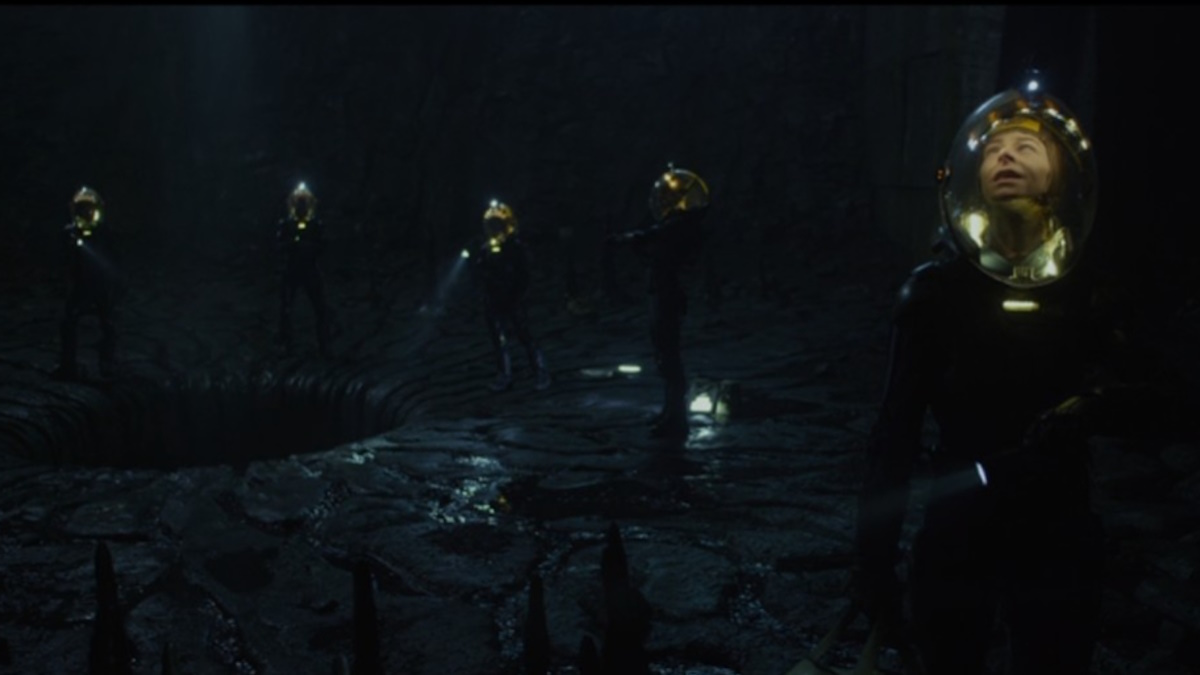
After decades of helming some of the biggest movies in Hollywood, Sir Ridley Scott returned to his iconic Alien saga for his standalone spin-off/prequel Prometheus. Set in the year 2089, Prometheus follows spacefaring archaeologists who seek to discover the origins of mankind. This leads the crew on a distant world where they don’t find the origins of humanity, but something that could be its doom. Featuring an all-star cast that includes Michael Fassbender, Noomi Rapace, Charlize Thereon, Idris Elba, and Guy Pearce, Prometheus is a mystifying sci-fi thriller that accepts we aren’t alone in the universe – but considers if we’re damned to die alone in it.
4. Annihilation (2018)
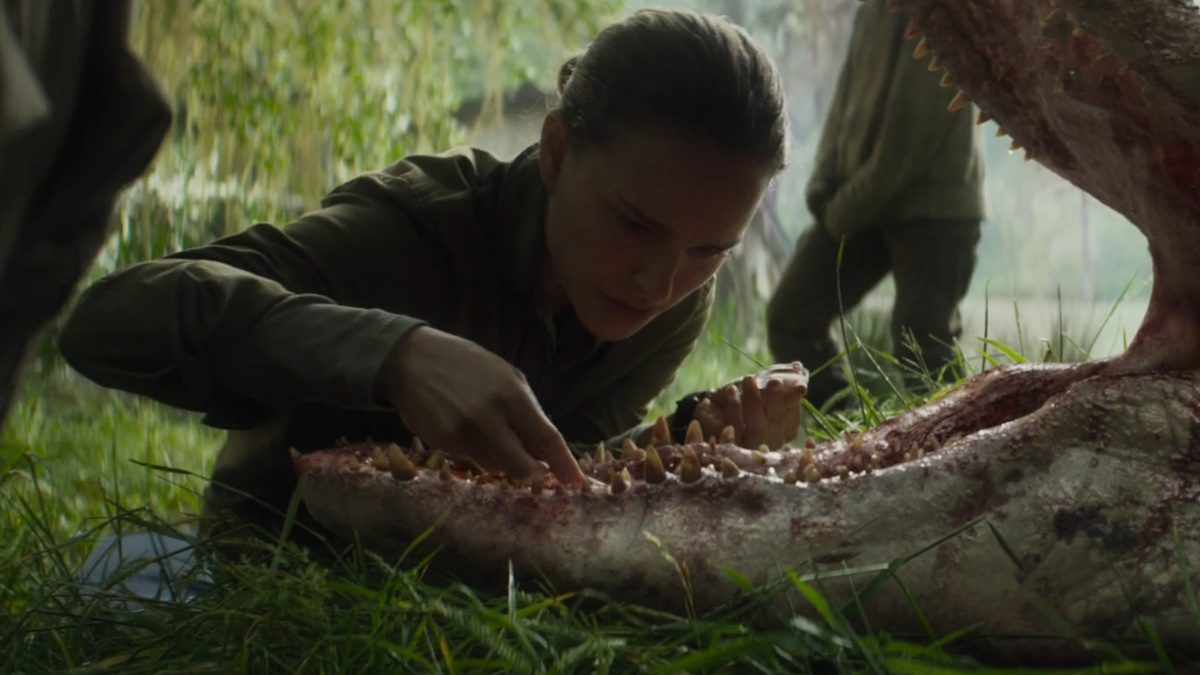
Following the acclaim of his 2015 sci-fi Ex Machina, Alex Garland adapted for the screen the first of Jeff VanderMeer’s Southern Reach book series, Annihilation. Natalie Portman, Jennifer Jason Leigh, Gina Rodriguez, Tessa Thompson, and Tuva Novotny star as female scientists who enter a dangerous zone called “The Shimmer,” in which the fauna inside are mutating due to an alien lifeform. Mesmerizing as it is monstrous, Annihilation is a modern cult classic loaded with challenging ideas of guilt and grief. In concert with spine-chilling sequences, the movie effortlessly leaves one horroried and awed all at once.
3. Sputnik (2020)
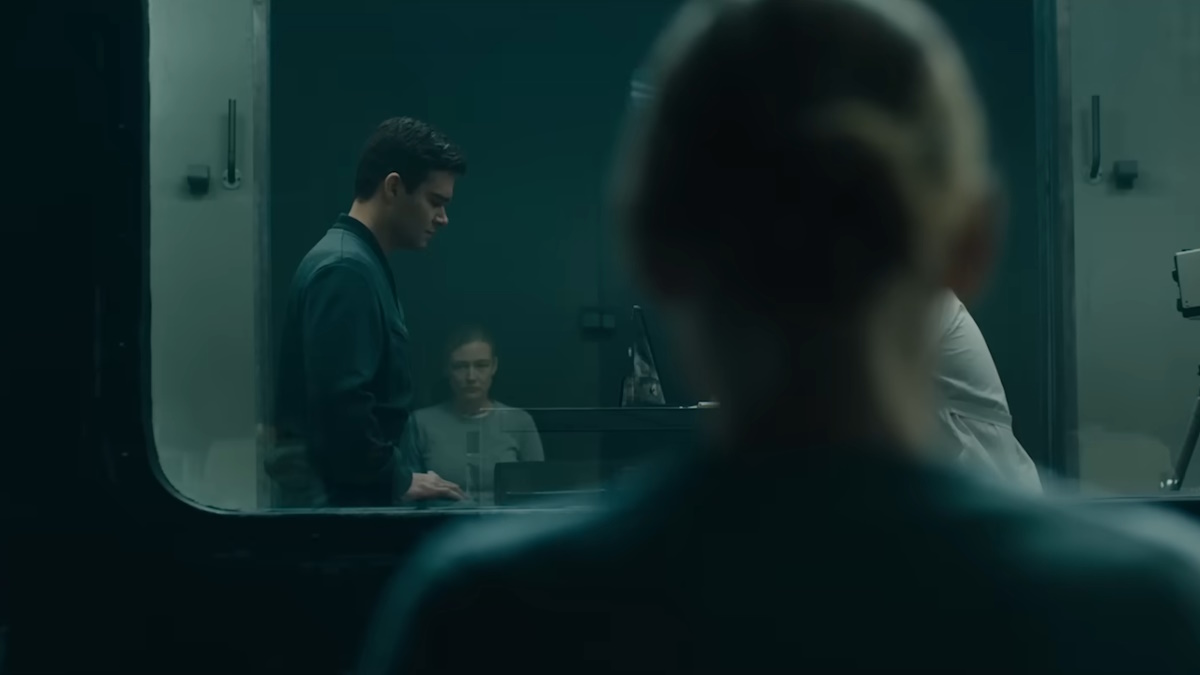
If the genre of sci-fi horror feels a little too played out, allow Russian filmmaker Egor Abramenko to bring you a new perspective. Released in 2020 and set in the final years of the Cold War, Sputnik follows a doctor (Oksana Akinshina) who is brought in to assess a cosmonaut who survived a horrible accent in space… and has apparently brought back an alien entity with him. The canon of Russian sci-fi is rather small, but Sputnik makes a great case that even familiar stories can be told with a fresh set of eyes.
2. The Thing (1980)
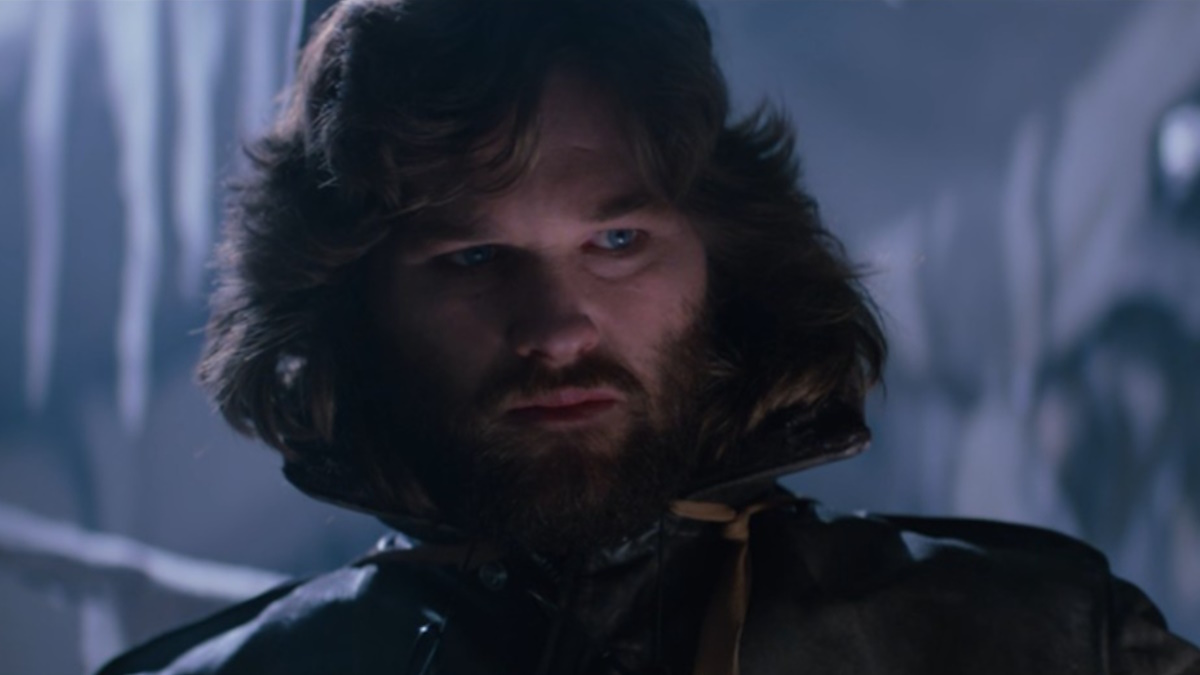
John Carpenter reportedly did not have a good time during production of The Thing. That the movie bombed with critics and flopped at the box office surely felt more painful than frostbite. But time has been exceptionally kind to Carpenter’s movie, becoming a universally beloved horror classic synonymous with its time and place. A remake of the 1951 movie The Thing From Another World, Carpenter’s movie explores the paranoia of mistrust among a group of Antarctic researchers whose ho-hum routine gets interrupted by a shapeshifting alien menace. Who is human? And who is… The Thing? The most shivering thing about the movie is that you’ll ultimately never really know.
1. Alien (1979)
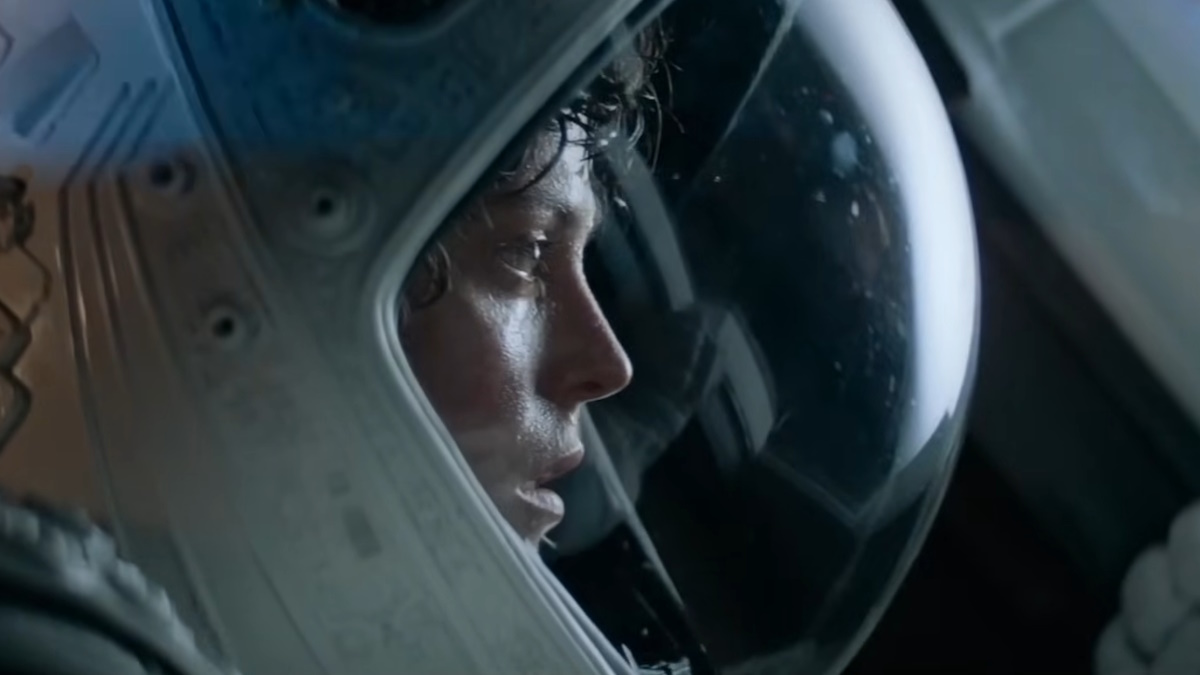
In space, no one can hear you scream. So goes the iconic tagline of Ridley Scott’s monumental Alien, which not only spawned a massive franchise but laid down the foundations of all that came out afterward. Set aboard a commercial space tug ship, the movie sees the crew of the Nostromo come undone when they answer a distress call and accidentally bring back an animalistic, acid-spewing malevolent alien. A star-making movie for Sigourney Weaver, Alien challenged preconceived notions that sci-fi was a cheap genre for children to make us remember that we probably aren’t alone in the universe, and whatever might be out there we’re powerless to stop.





